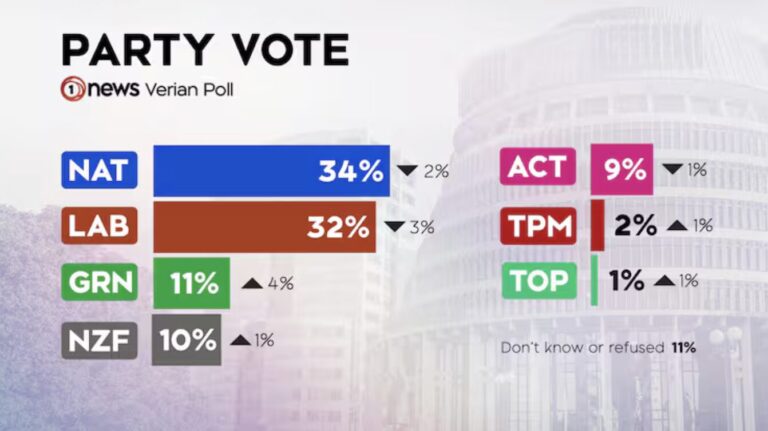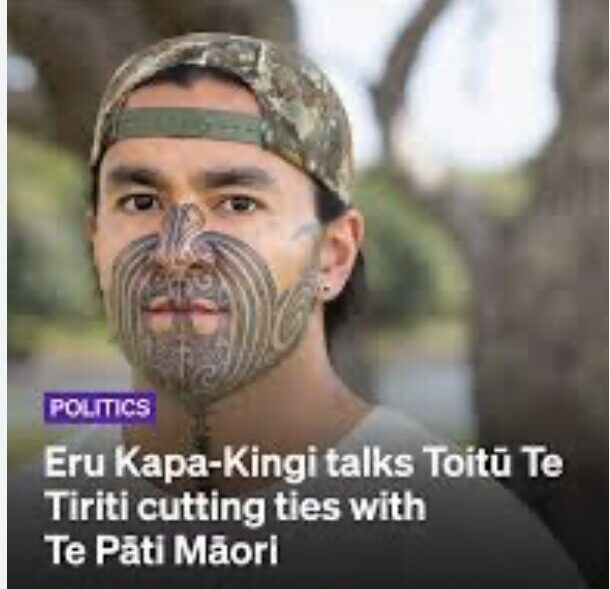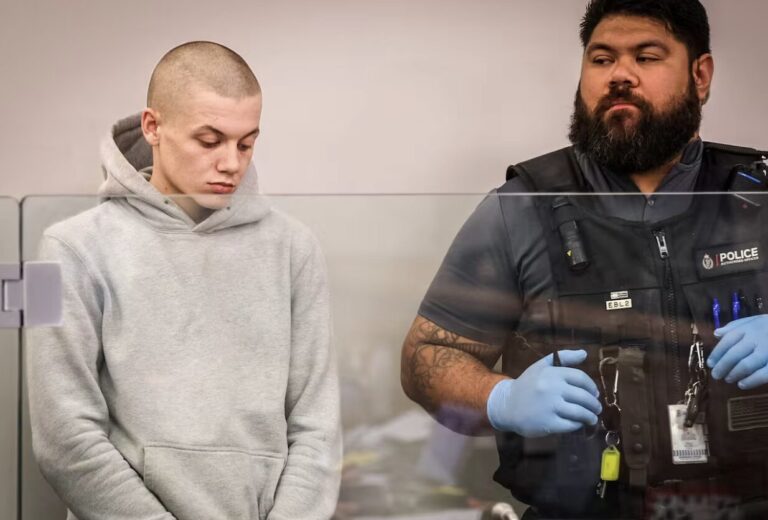Something Entirely Different: Why Co-Governance Is A Very Bad Idea.
THE ADVOCATES OF CO-GOVERNANCE clearly believe it to be an idea whose hour has come. But, such is the temper of the times New Zealanders are living through, that co-governance is not an idea which has had to withstand very much in the way of serious interrogation. Given its potential to divide the New Zealand population, this is not only unfortunate, but also bears grim witness to this country’s intellectual timidity. An idea that could tear this country apart surely merits much closer examination?
Such an examination cannot proceed, however, without making one vital assumption. The Treaty of Waitangi must be accepted – in the face of overwhelming contemporary evidence to the contrary – as a “partnership” between the British Crown and the tangata whenua of “Aotearoa”. This is crucial. If the Treaty was not a document dedicated to the principle of partnership, then it cannot also be a document mandating the co-governance of New Zealand.
Co-governance is being presented to us as the constitutional and political expression of “the principles of the Treaty of Waitangi”. If, as was generally accepted for nearly a century-and-a-half, the Treaty simply documents its signatories’ voluntary cession of sovereignty to the British Crown; the latter’s reciprocal pledge to respect both the materially and culturally sustaining resources of the indigenous communities; and the Crown’s granting to these communities of the full and equal protection of British Law – then its “principles” encompass no more than the unambiguous transfer of power from a weaker party to a stronger.
Obviously, it is impossible to extract co-governance from such an arrangement. The concept has meaning only if the Treaty itself is held to encompass something entirely different.
But this assumption does not make things any easier. If the signatories to the Treaty truly believed that it made them co-governors of New Zealand, alongside the official representatives and subjects of Queen Victoria, then the subsequent development of co-governance is fraught with difficulties and dangers.
Twelve years after the signing of the Treaty, when their numbers were roughly co-equal with those of the Māori, the subjects of Queen Victoria – manfully assisted by her official representatives – were granted a substantial measure of self-government. It did not take the Māori tribes very long to work out that they were constitutionally subsumed within this devolution of Royal authority. Bluntly, the Pakeha settlers believed themselves empowered to rule not only themselves, but Māori too. The idea of co-governance (assuming it had ever existed at all) seemed to have melted away like the morning mist.
It is possible, of course, to construe the history of the decade following the granting of self-government in 1853, and the outbreak of war between the settler government and the Māori tribes living in the territory immediately south of Auckland in 1863, as an attempt to construct a political vehicle capable of embedding the concept of co-governance in New Zealand’s nascent constitutional arrangements.
The attempt to create a Māori monarchy – the Kingitanga – made this desire for co-governance explicit. But the fate of the King Movement: military defeat and occupation, and the forfeiture of the participating tribes’ lands, forests and fisheries; makes it crystal clear what the colonial authorities thought of the co-governance concept. So, too, did the British Government, whose dispatch of more than 10,000 imperial troops, to enforce the will of the colonists, made the overpowering of the Māori proponents of co-governance inevitable.
Exposed in the course of the New Zealand Wars was the brutal political reality that, as the Romans discovered, there can be only one emperor in the empire. Duumvirs have a nasty habit of being reduced to single figures. As the heroes of the movie Highlander were fond of saying: “There can be only one.”
With the example of the 1850s and 60s in front of them, the proponents of co-governance in twenty-first century New Zealand should have no illusions about what lies ahead if the concept acquires the political solidity of the Kingitanga prior to General Cameron’s arrival.
And, thanks to the historical ignorance and constitutional naivety of the Sixth Labour Government, it is acquiring political solidity – with astonishing speed.
But, as co-governance becomes entrenched constitutionally, in the same way the ideas of the British settlers concerning the nature of the New Zealand state became entrenched in the 1850s, then its proponents need to be very clear about what is likely to happen next. The descendants of the settlers, and the inheritors of their colonial institutions – which includes the democratic political system itself – will, like the Māori before them, do all within their power to preserve the material and cultural properties by which they and their ancestors were, and are, uplifted and sustained.
In other words, they will fight.
There really is no other way the co-governance story can end.
Just as any dispassionate historian cannot avoid the conclusion that the settler government, adamant that it would not share power with the Māori, set out to provoke and prosecute a war of conquest against the only concentration of indigenous political, economic and military strength remotely capable of thwarting its plans to build a “Better Britain”, the Kingitanga; it is equally impossible to avoid the conclusion that those elements of the political class, academia, the judiciary, the bureaucracy and the news media; all the allies of the new Māori middle-class and the neo-tribal capitalists they serve; are equally aware that their plans to restore “Aotearoa” can only be imposed by dismantling “New Zealand” – and subduing all who still believe in her.
The proponents of co-governance have no genuine intention of sharing power with those who refuse to accept their understanding of the Treaty of Waitangi. Their purpose is the same as the Crown’s and the settlers’ armies that invaded the Waikato in 1863: to wield power.
Alone.







Immigration lowers wages and disrupts social cohesion – both good for the ruling classes whose aim is enrichment and power. This is about greed not culture (per se). They are equal opportunity abusers. They are as happy for racists to attack immigrants as they are for the left to label anti immigration policy as racist.
You stole my picture and used it at the top of this article without my permission. Probably not a good look for someone lecturing us about rights and obligations.
I wonder if the significant percentage of immigrants from India, or China (two large groups) could be thought of as ‘colonialists’ in the future of the motu.
Immigration is a tool of colonialism. Sir Julius Vogel, who initiated the colonial regime’s policy of mass immigration, described it as the only alternative to a war of extermination against Maori, and to this day the colonial regime uses mass immigration in an effort (which will ultimately prove futile) to suppress and overwhelm Maori and the tangata motu of Aotearoa.
However that does not mean that all immigrants are colonialist in attitude, intention or effect. Some choose not to recognise the British claim to sovereignty over Aotearoa, or to give their allegiance to the British monarch. So those cannot be described as colonialist, regardless of their country of origin.
Upsidedown; they are serious about this idea… And as Ardern said on Feb 6th : the mahi is not done.
The British state could not have incorporated Aotearoa into its global empire without the help of Maori. The Treaty of Waitangi was formulated in recognition of this reality. Then, without the help of “friendly Maori”, the kupapa, British forces would not have prevailed in the wars of the 1860s and 1870s.
Friendly Maori remained useful to colonialism through the twentieth century, fighting Britain’s wars in Africa and Europe and Malaysia, and America’s wars in Korea and Vietnam.
What has changed now? Well, the role assigned to Maori in the preservation of the colonialist order is now more critical than at any other time since 1860. That is what co-governance is all about. As the brainchild of the colonialist party par excellence, the NZLP, cogovernance is intended to combine the power of the European establishment and the mana of Maori elites as a bulwark against the rise of populist and nationalist sentiment among the peoples of Aotearoa.
The problem, as Chris Trotter realizes, is that it won’t work. The cogovernance system will swiftly come to be seen for what it is – a vain attempt to prolong the era of colonialism at the expense of working class Maori and Pakeha rather than a genuine expression of rangatiratanga.
Trotter is mortified, because he sees the entire colonialist project jeopardized by the ill-judged cogovernance proposals. Ultimately, however, it will make little difference. The struggle between colonialism and rangatiratanga may be more bitter, divisive and possibly violent if a significant portion of Maori choose to throw in their lot with colonialist cogovernance but the ultimate outcome will be the unchanged. Cogovernance or no cogovernance, colonialism has a distinctly limited future in our motu.
A writer of note once said: “Democracy is the right to have what you don’t want to have.”
well yeah but I don’t understand why the obsession with such an old concept, really. Democracy is dead, any technocrat will tell you that.
It’s all gas and wind and goes nowhere good politically.
If Labour doesn’t have a ball sack large enough to take on the middle class property owning rort then they are hardly going to attempt to blow up our democracy and introduce a form of apartheid.
I vote left and would leave Labour in a heartbeat if they ever got serious about this idea, and frankly I would consider holding my nose and voting ACT in order to kick this idea so far into the margins it wouldn’t re-emerge as a political issue for a hundred years.
Best not to go here, better to spend the political energy on solving the real problems that the poor and working class suffer from rather than risk kicking off the trumpification of NZ politics for which Jacinda and Robertson will never be forgiven.
S
Matthew Campbell, There may be another way to resolve this government induced crisis, and that is to dispense with the government which engineered it. The alternatives may be bleak, but the long-term future of New Zealand will be bleaker if democracy is jettisoned in favour of apartheid.
Reality is both Chris and Bomber
are right
This government have produced a crisis which can only be resolved by 1 of 2 choices, Apartheid or Democracy
I hope that it can be resolved peacefully but there are only 2 choices
Thanks for this Chris.
Few are comfortable talking about this because its deemed ‘racist’ to oppose it. But for those of us who are wedded to democratic ideals, this new wave is really repugnant. Wrong both historically and constitutionally. The fact that it is Maori as opposed to Asians or anyone else is irrelevant in a sense, it is the principle of the thing. I want the lot of ordinary Maori to improve significantly but I will never support co Governance.
And as was predicted from the outset, this approach is hugely divisive and can ultimately only end in one way. What makes this even more frustrating is that as we go deeper and deeper into this paradigm, there is no improvement in the lot of ordinary Maori. This whole thing is political virtue signalling.
If they really wanted to improve things for Maori, they would have begun building houses 7 years ago.
Zombi I will never support co-governance either, and it is far from democratic to cede huge amounts of power to a minority of the population.
That this minority is Maori is relevant in that unlike other ethnicities, Maori – some Maori – are claiming that the Treaty affords them this right, on ground as shaky as any earthquake, but far more damaging. A motley bunch of politicians of dubious quality trying to inflict divisiveness upon its own people based on an increasingly controversial legal document, is frankly so surreal that one has to ask if there’s another agenda here.
It is also logistically impractical and unrealistic.
Zombi I will never support co-governance either, and it is far from democratic to cede huge amounts of power to a minority of the population.
That this minority is Maori is relevant in that unlike other ethnicities, Maori – some Maori – are claiming that the Treaty affords them this right, on ground as shaky as any earthquake, but far more damaging. A motley bunch of politicians of dubious quality trying to inflict divisiveness upon its own people based on an increasingly controversial legal document, is frankly so surreal that one has to ask if there’s another agenda here.
It is also logistically impractical and unrealistic.
You could do a symbolic change , replace the British Queen (crown) and create a royal Maori dynasty whose role is mainly ceremonial.
The idea that Queen Victoria and the British Empire would sign an agreement of co-governance with a people barely out of the Stone Age is just preposterous.
All were equal and that’s it – no more no less.
This co-governance thing is a power grab by the Maori elite to enrich themselves and will do nothing for the working classes of any race or creed
It’s terrifying to think that Labour support it!
Didn’t in article 2 (te Reo version) the chiefs cede their kawanatanga (governorship) to the Crown? To me this does not scream ‘co-governance’. Tino rangatiratanga allows self determination of iwi under the governance of the Crown. You are right Chris – the government is being naïve.
Well said Chris!
No other country has managed to sustain a system of tiered citizenship for long: South Africa expended its vast gold wealth propping up apartheid but it only lasted 42 years. This is wealth we do not have.
Looking on the positive side, the Treaty was a vast success in its day, helping to end the incredibly brutal Maori musket wars, freeing their slaves and giving all Maori access to the rule of rule instead of the quick and fickle justice handed out by chiefs. In 1860 at the conference of Kohimarama Maori chiefs expressed their gratitude for the Treaty because for the first time ever they could exist in a state of peace.
Moving on to today, if National wins the next election I sincerely hope they spring a referendum on us to abolish the Maori seats. I think this would be overwhelmingly approved, even by most Maori (as an indication a clear majority of Maori prefer to be on the main electoral roll). Note also that this was recommended by the Royal Commission in 1984, and we can now see it was a terrible mistake not to heed that advice.
It’s time we bit the bullet and cauterize this wound in our society, lest it become a fatal infection.
Under the English Westminster system of government in operation at that time in New Zealand, sovereignty was never a divided concept. Ergo the writers of the Treaty would not have drawn up, now would the crown have agreed to, such a radical constitutional upheaval. The “principles “ of the Treaty, as others have pointed out, appears to have been an innovation of Geoffrey Palmer, without these principles being defined, which is not particularly good law.
AS for the ToW, let’ s read the words of Sir Apirana Ngata of his Treaty of Waitangi, an Explanation (1922): : “I am afraid the explanations have been somewhat lengthy. It could have been quite short if I had just stated, the Treaty of Waitangi created Parliament to make laws. The Treaty has given us the Maori Land Court with all its activities. The Treaty confirmed Government purchases of lands which is still being done and it also confirmed past confiscations. The Treaty sanctioned the levying of rates and taxes on Maori lands, it made the one law for the Maori and the Pakeha. If you think these things are wrong and bad then blame our ancestors who gave away their rights in the days when they were powerful.”
The Kohimarama conference in 1860 showed the support of the majority of the tribes for existing “settlers” government and it should be also said that there were many Maori tribes who participated on the wars on the Government side. Which opens the question what part of Maori today really support the policy of two governments.
And finally we all including Maori, should ask the basic question: do we really think that the ethno tribal state is better than Western type of democracy? Look around the world, look at the history of mankind, can you point to any system that worked and works better for people? The historical documents show crystal clear that when Maori embraced the European worldview, culture, lifestyle it was to their benefit. Wouldn’t it be better to accept in accordance with the UN Declaration of Human Rights that “all human beings are born free and equal in dignity and rights” the colourblind policy of oneness? After all there is no difference between Maori, European, Asian, African, American children, why then should we insist and make them different because of the colour of their skin?
I;m quite sure that Chris would agree with you.
D J S
Ahh Chris, when South Auckland comes to Paratai Drive.
So I guess we can predict with some accuracy that if successful, Maari separatist will end up jaded against pakeha and ultimately make a lot of the mistakes that white people made.
I guess history is truly something that can not be learnt from.
Not even the Maaris that settled with the crown are anything like there ancestors. It’s clear that nation builders need to garner a lot of trust back, after the successes of the musket and land wars.
I still hope that going into the climate negotiations that Maori will play a prominent role to insure their continued existence and can be somewhat redeemed. But the appearance of Maori, and inclusion into governance is now a permanent after thought. It’s like non Maori can’t wait to shove Maori aside as quickly as possible.
I’m very pleased that any attempts by Maori to assume government responsibilities like Oranges Ramariki for instance has fallen flat.
I can’t help but feel melancholy watching Maaris rebuild pakeha democracy knowing the ultimately, Maaris will be shoved aside into government rape pens or worse. And the sight of Maaris swearing off there own as lazy, Brown, uneducated, bare foot, drunk no good people.
I really really do not want to watch beautiful moments with Maori and the next generation earning the right to rule only for everything to be pre determined a few decades later. That basically Maori and pakeha are a mirror image.
Y’know be kind, be generous. Do your homework, pay your taxes, vote. These are some of the lines you would expect to hear during the rebuilding of democracy that just fall flat into a people that refuse to get off the fence and protect mother nature and refuse to protect the ones they love.
It just doesn’t seem right and feels very melancholy that Maori will go down a dark path because pakeha are incapable of serving justice.
I know a lot of kiwis are sick of seeing, particularly they are sick of hearing Maori spoken. But I feel that the reason Maori are a massive player now, is because Maori have always been massive players in new Zealand’s make up relative to population and demographics.
And if you are going to govern new Zealand a hundred years after signing a treaty with them then Maori are going to play a prominent role.
While events can be written about new Zealand with out tying Maori to it. I see no such problems in including Maori in that story.
Said another it’s a big downer knowing that the success of Maori and pakeha living in harmony and huging trees is predetermined on restarting the student visa scam and making the poor, poorer.
Ultimately Maori can not have a huge impact on the way white people interact with the rest of the world. And to legitimise that view Maori must be made to look and sound just like good old white folk.
Greek democracy is ultimately a tragedy. All our favourite characters and love ones ultimately perish, suffer and end up on darker paths to which they started on. And it just saddens me that the Maori who are trying there best to do right is headed down the path of history.
I guess this opportunity to produce wonderful visions of redemption, learning and do right by Maori has to give way to continuity with the iron laws of history.
It just saddens me knowing that anything that Maori builds will ultimately be deployed to destroy the very image of MaoriTanga.
Your post is truly food for thought, Sam.
that would be me in the picture: https://vjmpublishing.nz/?p=31531 …if I was a dude btw.
We are commanded by our disney overlords to wait, drooling, for their happy ending where the credits roll, the formatted music plays and tay tay kisses us goodnight…yeah nah the world is not made of sugar, fortunately.
I’ll just leave this here:
“It may require a revolution to do it, but, one day, the tino rangatiratanga flag will replace the silver fern, the Southern Cross and the Union Jack.”
— Chris Trotter